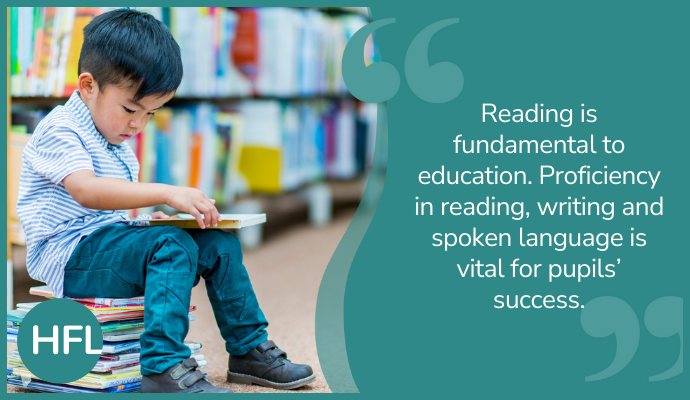
Reading is fundamental to education. Proficiency in reading, writing and spoken language is vital for pupils’ success. Through these, they develop communication skills for education and for working with others: in school, in training and at work.
DfE, The reading framework Teaching the foundations of literacy, July 2021
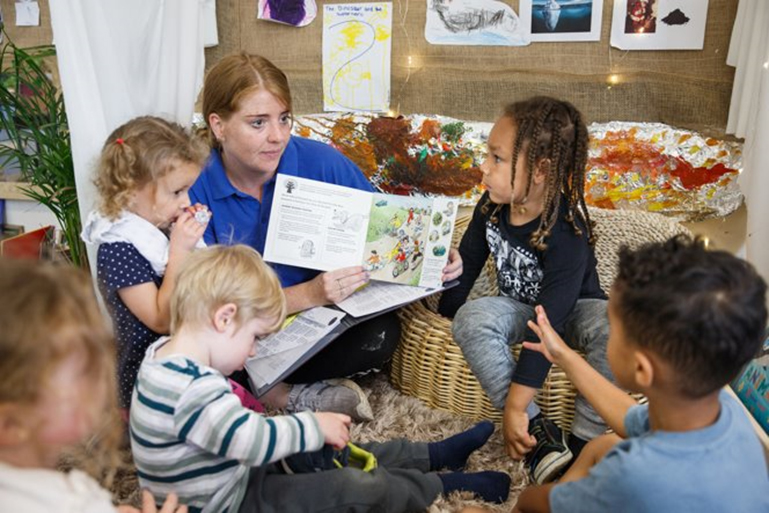
Where did it all start?
It’s often said that humans have only been reading for around 6000 years. That’s in spite of us having a brain that contained a visual cortex (the part that we use when we read) millions of years earlier. Or perhaps we did actually gain the ability to read earlier? Much, much earlier!
According to Derek Hodgson in his research paper presented in the Journal of Archaeological Science Reports (2019), he explains that he believes that it was at this earlier time because this is when humans started to make repetitive marks. These aren’t at all similar to the later pictures that were created in cave drawings, but quite separate and distinct, repetitive symbols. There are some shell engravings that have been discovered in South Africa containing repetitive symbols that date from 540,000 years ago! This is interesting information for us as practitioners who are required to teach children to read in that it’s nothing new, humans have apparently been ‘reading’ for over 500 millennia! The interesting bit is that although it’s been a skill for hundreds of generations, it’s never evolved into a skill that comes naturally to the human brain. It still needs to be taught. And taught well.
The importance of reading
In July of 2021, we saw the publication of The Reading Framework which contains advice from the DfE about reading and ideas about how it might be taught in schools. It has interesting information about the English language and it sets out some principles underpinning the teaching of reading. It, of course, contains details about the teaching of phonics - the recommended strategy for teaching early decoding skills to young children, what we know to be the ‘nuts and bolts’ of early reading. This document is presented to us alongside the validated list of phonic schemes. These schemes are recommended to schools who are making the decision to change their current approach to teaching phonics. The teaching of phonics has been highlighted by Ofsted as something they would expect to see being taught during their ‘deep dives’ into reading. Gill Jones, Ofsted’s Deputy Director for Early Education explained in 2019 that phonics needs to be taught daily in Reception classes. Children need to read closely matched books and that extra practice might be seen throughout the day for those in need. Underpinning all of this skills teaching, teachers need to instil ‘a love of literature: (through sharing) the best stories and poems’! Something not added to this is the understanding that children really do need a good grounding in the foundations for phonics i.e. early phonics – phonemic awareness.
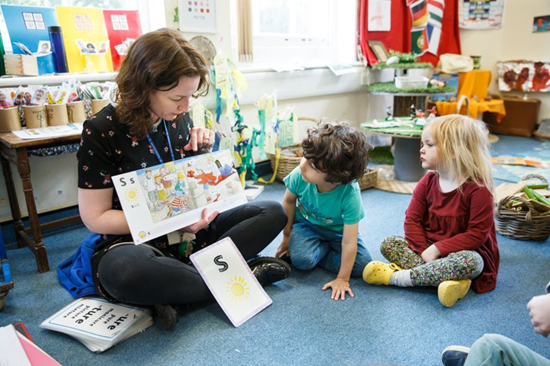
The teaching of reading - a joy or a challenge
Do you enjoy teaching early reading, or do you feel overwhelmed with it all? As early years practitioners, we understand the importance of developing children’s early reading skills to prepare them for Key Stage 1 and lifelong learning. ‘It is crucial for children to develop a life-long love of reading.’ (Department for Education Early years framework, September 2021). With the new EYFS Statutory Framework, September 2021 as well as the non-statutory guidance of Birth to 5 Matters and Development Matters and of course, the Ofsted Framework, it can be overwhelming to think about where best to start in planning a rich and comprehensive reading curriculum.
As we know, reading is a skill that requires comprehensive, sequential planning. It also necessitates skilful adult interactions along with high-quality opportunities across the learning environment that enable children in the EYFS to practise, consolidate and rehearse their learning. Early reading skills begin at a young age when children are absorbing and responding to the language that is around them. They then begin to communicate with those around them and, upon receiving a response, early communication and language skills are embedded. Much of this early language acquisition may also come from books being shared with children, by parents and carers and later, in the EYFS settings and schools they attend.
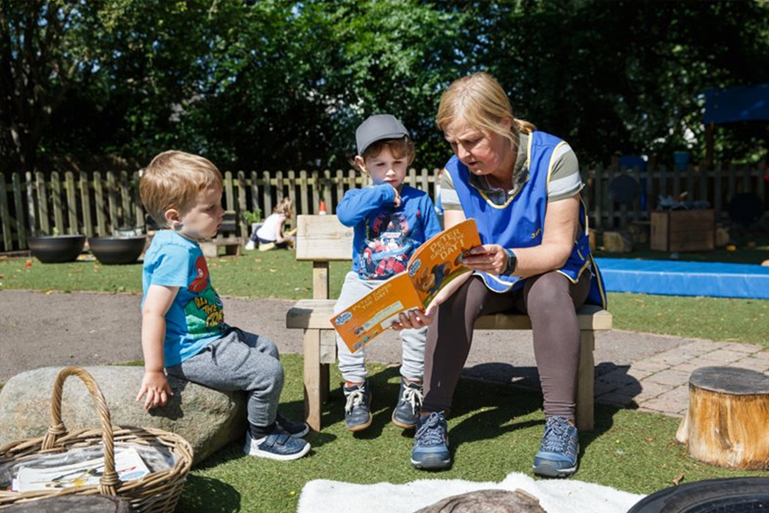
Taking this into account, it then becomes apparent that literacy rich learning environments that promote reading are an essential element in promoting early reading. As a practitioner, when did you last review how well your EYFS is doing this? How well is your provision engaging children with early reading opportunities? Taking time to review your phonics programme is another essential element of developing secure early readers.
Why not let us support you on your journey to improving early reading across practice and provision by joining the ‘Succeeding with Reading’ programme starting in autumn 2023. The programme aims to support English leaders and EY leaders to review and monitor the processes and provision that support the development of early reading in the EYFS. This comprehensive programme is based on current research and will commence in the autumn term with a ‘launch’ event, followed by a thorough early reading audit visit. During the audit, advisers from the HfL Early Years team will review your current early reading practice and provision. This will then be followed with bespoke training sessions in the spring term, with a final celebration of impact event at the end of the programme in late spring.
The programme aims to support leaders and teachers to:
- develop their knowledge and skills in reviewing, developing and implementing a highly ambitious and focused approach to reading
- using a specifically designed audit tool to monitor provision and practice
- create a provision where there is sufficient opportunity for children to practice, rehearse and consolidate reading skills across the curriculum in meaningful, play-based contexts
- improve the reading skills of children in their care
Here is some of the feedback from delegates that attended the ‘Succeeding with Reading’ programme last year.
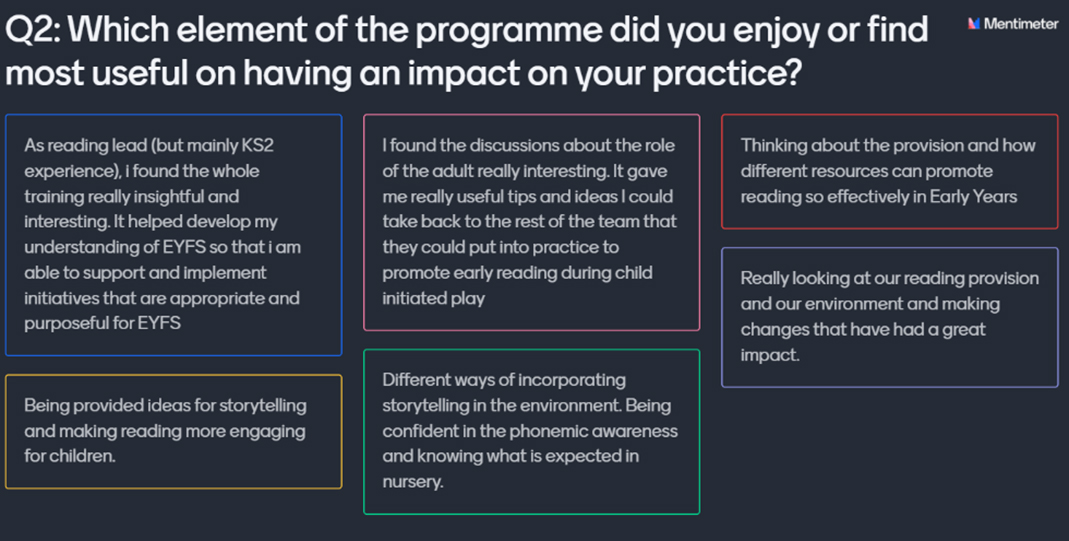
The audit visit report is really comprehensive and incredibly useful for us. I know that my Reading Lead and my Phonics Lead found the afternoon really valuable and insightful.
Richard Fordham, Headteacher, Stopsley Community Primary School and Nursery
Thank you for this report and we would like to thank you for a positive and very useful audit visit. We are currently working on our Reading Action Plan and have taken on board the great advice that we received in the feedback meeting and the report and feel it will be very beneficial in developing reading in our Early Years.
EY leader, St John the Evangelist RC Primary School, Islington, London
Visit the HfL CPD hub for further information and to book your place or contact earlyyearsteam@hertsforlearning.co.uk.


